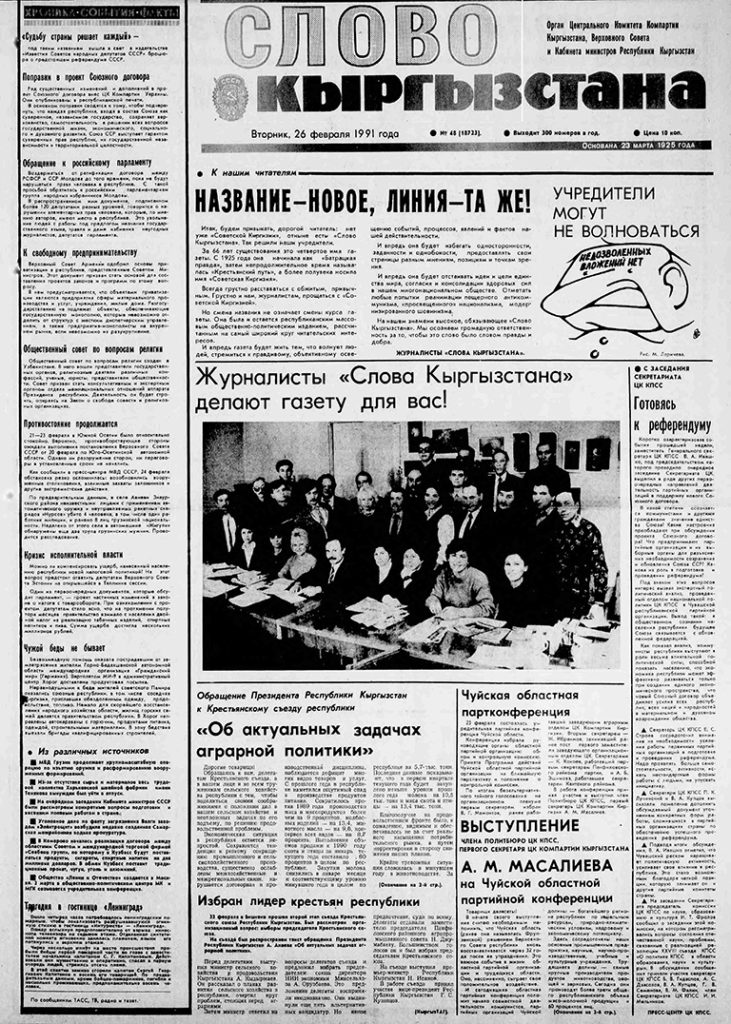Slovo Kyrgyzstana Digital Archive
Official newspaper of the Central Committee of the Kirghiz SSR
Established in 1925 in what was then the Kara-Kirghiz Autonomous Oblast in the RSFSR, Slovo Kyrgyzstana (Слово Кыргызстана, Word of Kyrgyzstan) is a Russian-language newspaper that served as the official party organ of the Central Committee of the Kirghiz SSR throughout its Soviet existence. It has been published independently since it gained independence from the Soviet Union in 1991. Known variously as Batratskaia Pravda (Батрацкая правда, Batratskaya Truth, March-June 1925), Krest’ianskii put’ (Крестьянский путь, Peasant Path, 1925-1927), and Sovetskaia Kirgiziia (Советская Киргизия, Soviet Kyrgyzstan, 1927-1991), at its peak the newspaper claimed a circulation of 123,000 copies and was the most important media organization disseminating the Communist party’s official stances and directives. Slovo Kyrgyzstana covers both national and international affairs, culture, economics, environmental issues, healthcare, religion and other important issues of concern.
